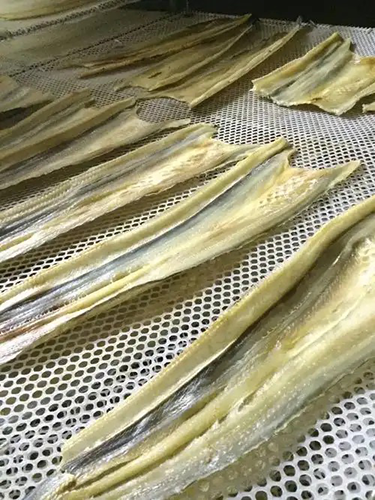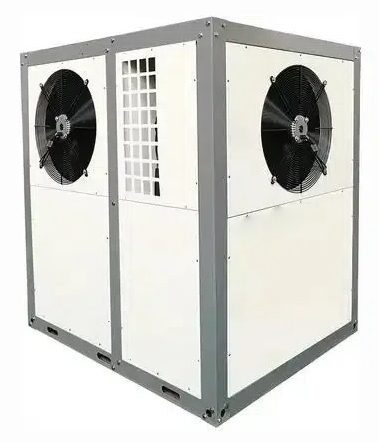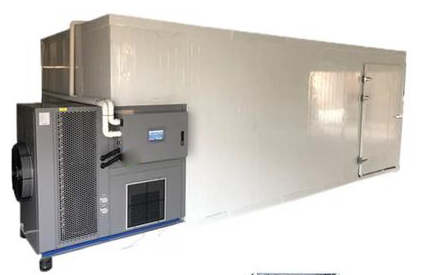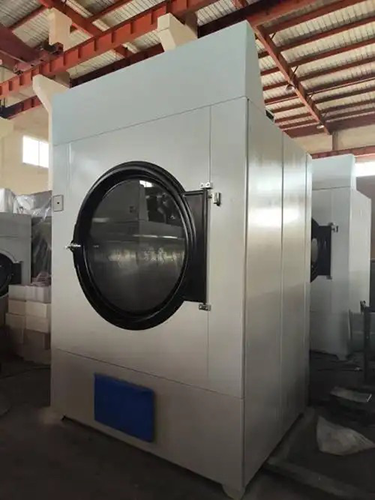
Content Menu
● Understanding Food Drying
● What Are Ventless Dryers?
● Types of Ventless Dryers
● Comparing Drying Times
>> Drying Time Factors
>> Condenser Dryers
>> Heat Pump Dryers
● Efficiency and Energy Consumption
>> Energy Efficiency
>> Environmental Impact
● Suitability for Different Food Products
>> Fruits and Vegetables
>> Meats and Fish
>> Herbs and Delicate Foods
● Additional Considerations for Food Drying
>> Maintenance and Cleaning
>> Cost Considerations
>> Technological Advancements
● Conclusion
● Frequently Asked Questions
>> 1. What is the main difference between condenser and heat pump dryers?
>> 2. Which dryer is better for drying herbs?
>> 3. How does drying time vary between different food types?
>> 4. Are heat pump dryers more energy-efficient than condenser dryers?
>> 5. Can I use a condenser dryer for all types of food?
In the world of food processing, drying is a crucial step that significantly impacts the quality, shelf life, and flavor of food products. As a manufacturer of food drying machines in China, we understand the importance of selecting the right drying technology for various applications. This article will explore the comparison between condenser and heat pump ventless dryers, focusing on their drying times, efficiency, and suitability for different food products.

Understanding Food Drying
Food drying is a method of preserving food by removing moisture, which inhibits the growth of bacteria, yeasts, and molds. The drying process can enhance flavors, reduce weight for easier transport, and extend shelf life. There are various methods of drying food, including air drying, sun drying, and using specialized drying machines. Among these, ventless dryers, particularly condenser and heat pump models, have gained popularity due to their efficiency and effectiveness.
What Are Ventless Dryers?
Ventless dryers are appliances that do not require external venting to expel moisture-laden air. Instead, they use a closed-loop system to recycle air within the machine. This feature makes them ideal for locations where venting is impractical, such as small kitchens or food processing facilities.
Types of Ventless Dryers
1. Condenser Dryers: These dryers work by heating air and passing it through the food. The warm air absorbs moisture, which is then condensed into water and collected in a tank. This method is effective for drying a variety of food products, including fruits, vegetables, and meats.
2. Heat Pump Dryers: Heat pump dryers operate on a similar principle but use a heat pump to recycle air. They are more energy-efficient than condenser dryers, as they operate at lower temperatures and use less electricity. This makes them suitable for delicate food items that require gentle drying.
Comparing Drying Times
Drying Time Factors
The drying time of food in a dryer depends on several factors, including:
1. Type of Food: Different foods have varying moisture content and density, affecting how quickly they dry.
2. Temperature Settings: Higher temperatures can speed up the drying process but may also affect the quality of the food.
3. Airflow: Proper airflow is essential for efficient drying, as it helps to remove moisture from the food surface.
4. Humidity Levels: The ambient humidity can influence drying times; lower humidity levels generally lead to faster drying.
Condenser Dryers
Condenser dryers typically operate at higher temperatures, which can lead to faster drying times for certain food products. For example, when drying fruits like apples or bananas, a condenser dryer can reduce moisture content significantly within a few hours. However, the high temperatures may not be suitable for all food types, especially those that are sensitive to heat, such as herbs or delicate vegetables.
Heat Pump Dryers
Heat pump dryers, on the other hand, operate at lower temperatures, which can result in longer drying times. However, this method is gentler on the food, preserving more nutrients and flavors. For instance, when drying herbs or leafy greens, a heat pump dryer may take longer but will yield a higher quality product. The trade-off between drying time and food quality is a crucial consideration for manufacturers.

Efficiency and Energy Consumption
Energy Efficiency
One of the significant advantages of heat pump dryers is their energy efficiency. They use less electricity compared to condenser dryers, making them a more sustainable option for food processing facilities. This efficiency can lead to cost savings over time, especially for businesses that rely heavily on drying processes.
Environmental Impact
In addition to energy savings, heat pump dryers have a lower environmental impact. By consuming less energy, they contribute to reduced greenhouse gas emissions. For companies looking to enhance their sustainability practices, investing in heat pump technology can be a step in the right direction.
Suitability for Different Food Products
Fruits and Vegetables
Both condenser and heat pump dryers can effectively dry fruits and vegetables. However, the choice between the two often depends on the desired quality of the final product. For example, if a manufacturer prioritizes speed and cost-effectiveness, a condenser dryer may be the better option. Conversely, if the goal is to preserve flavor and nutrients, a heat pump dryer would be more suitable.
Meats and Fish
When it comes to drying meats and fish, the choice of dryer can also impact the final product. Condenser dryers can quickly remove moisture, making them ideal for jerky production. However, heat pump dryers can provide a more controlled drying environment, which is beneficial for maintaining the texture and flavor of the meat.
Herbs and Delicate Foods
For herbs and other delicate foods, heat pump dryers are generally preferred. The lower temperatures help to retain essential oils and flavors, resulting in a higher quality product. Manufacturers focusing on premium herb products should consider investing in heat pump technology.
Additional Considerations for Food Drying
Maintenance and Cleaning
Both types of dryers require regular maintenance to ensure optimal performance. Condenser dryers may need more frequent cleaning of the water tank and filters, while heat pump dryers often require less maintenance due to their closed-loop system. Understanding the maintenance requirements can help manufacturers choose the right dryer for their operations.
Cost Considerations
The initial investment for heat pump dryers is typically higher than that of condenser dryers. However, the long-term savings on energy costs and the potential for higher quality products can make heat pump dryers a more economical choice in the long run. Manufacturers should evaluate their budget and production needs when deciding which type of dryer to purchase.
Technological Advancements
As technology continues to evolve, both condenser and heat pump dryers are becoming more efficient and user-friendly. Features such as programmable settings, moisture sensors, and energy-saving modes are increasingly common. Staying informed about the latest advancements can help manufacturers make better purchasing decisions.
Conclusion
In conclusion, both condenser and heat pump ventless dryers have their advantages and disadvantages when it comes to drying time and food quality. The choice between the two largely depends on the specific needs of the food processing operation. For businesses prioritizing speed and cost, condenser dryers may be the way to go. However, for those focused on quality and sustainability, heat pump dryers offer a compelling alternative.
As a manufacturer of food drying machines, we are committed to providing high-quality OEM services to brands, wholesalers, and producers worldwide. Understanding the differences between these technologies can help our clients make informed decisions that align with their operational goals.

Frequently Asked Questions
1. What is the main difference between condenser and heat pump dryers?
The main difference lies in their operation; condenser dryers use higher temperatures and are generally faster, while heat pump dryers operate at lower temperatures and are more energy-efficient.
2. Which dryer is better for drying herbs?
Heat pump dryers are better for drying herbs as they operate at lower temperatures, preserving essential oils and flavors.
3. How does drying time vary between different food types?
Drying time varies based on the moisture content, density, and type of food. Delicate foods may take longer to dry in heat pump dryers, while denser foods may dry faster in condenser dryers.
4. Are heat pump dryers more energy-efficient than condenser dryers?
Yes, heat pump dryers are generally more energy-efficient, consuming less electricity over time.
5. Can I use a condenser dryer for all types of food?
While condenser dryers can be used for various foods, they may not be suitable for delicate items that require lower drying temperatures.












